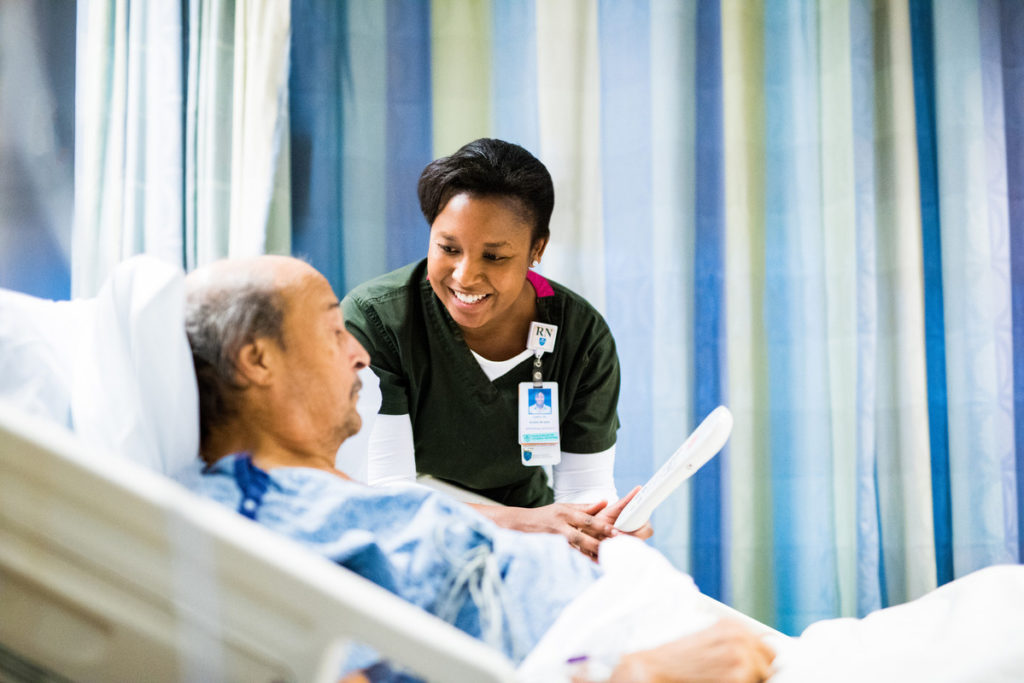Ajay Nehra, MBBS, a Massachusetts General Hospital urologist, encourages men to talk to their doctors about the often-manageable side effects that can follow prostate cancer treatments.
“The challenge is to encourage men to come forward, so we can address what they are experiencing.”
Those issues can include urinary incontinence, erectile dysfunction and low testosterone, says Dr. Nehra, director of Men’s Health and Male Reconstructive Surgery at Mass General.
He knows patients can be reluctant to discuss these personal issues, even with their doctor, but if side effects go untreated, they can be lifelong.
As a result, some patients develop “depression, a loss of self-esteem and a tremendous amount of apathy about life,” Dr. Nehra says.
Treating Prostate Cancer
Prostate cancer hits men in their late 50s and early 60s. After skin cancer, it is the most common cancer among men. Typically, the cancer is found early, when it is confined to the prostate and nearby region. The 10-year survival rate for men with local or regional prostate cancer is 98 percent, according to the American Cancer Society. But it is also the second-leading cause of cancer death among men in the U.S.

At Mass General, the medical team and patient select treatments based on how far the cancer has spread. Treatments range from monitoring patients in the early stages of disease, to surgery, radiation and chemotherapy when it has advanced.
“Cancer is always tough, for the patient, the spouse and the family,” Dr. Nehra says. “Fortunately for many prostate cancer patients, life continues. The challenge is to encourage men to come forward, so we can address the side effects they are experiencing.”
It starts with medical providers listening to their patients’ concerns and helping them find the right specialist or resource to address their need, Dr. Nehra says.
Prostate Cancer Side Effects
Many patients may be surprised to learn the side effects can be managed. Dr. Nehra points to a few strategies:
- A change in diet and seeing a gastroenterologist can help with bowel function.
- Exercise and vitamin D can help with bone loss.
- Low testosterone can be managed in many ways, including with exercise and weight loss.
- Sexual issues and incontinence can be improved with medication and surgical interventions.
Most prostate cancer patients will experience some side effects, he explains. In addition to the physical discomfort, side effects can greatly impact someone’s quality of life. For example, urinary incontinence can prevent patients from working or playing sports. Erectile dysfunction can affect relationships on the most intimate level.
“How can somebody be happy at work and in their relationship as part of a couple, if they are bogged down by these issues?” Dr. Nehra asks.
Focus on Men’s Health
In his new role as director of the MGH Center for Men’s Health, Dr. Nehra is leading the coordination of an effort to improve diagnoses of health conditions when they arise — with the goal of preventing health crises from developing.
“If an individual in remission can get his life back, its a win-win.”
It is the first center dedicated to men’s health in New England. Mass General’s innovative approach brings medical teams together and centralizes data. The center has the potential to transform health outcomes for men by diagnosing conditions like diabetes, heart disease and cancer earlier.
And it coordinates with Mass General’s already-established network of resources that help patients navigate life following cancer. The hospital’s approach to survivorship emphasizes maintaining the close relationships that develop between patients and their oncology team and strengthening communication and care coordination between the oncology team and primary care.
Patients have access to support groups, mind-body health and exercise guidance programs, nutrition, primary care physicians, physical therapy, specialists, psychology services and reproductive health care.
“If an individual in remission can get his life back, it’s a win-win,” Dr. Nehra says. “Helping patients do this is one of our most important priorities.”
To make a donation to support Dr. Nehra’s work to improve prostate cancer care, please contact us.


